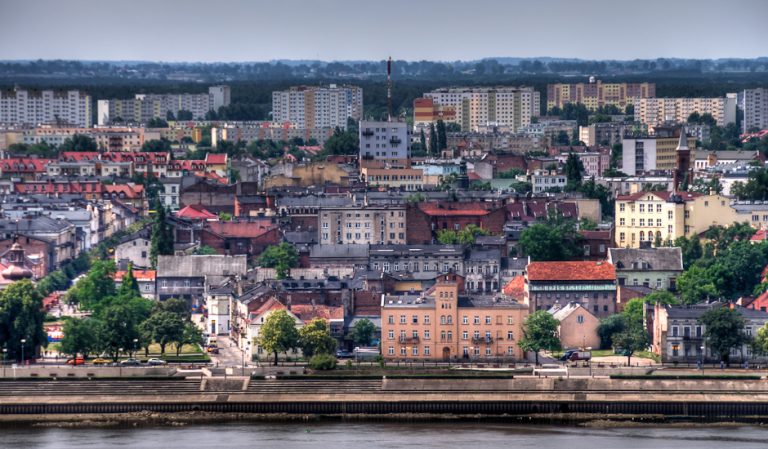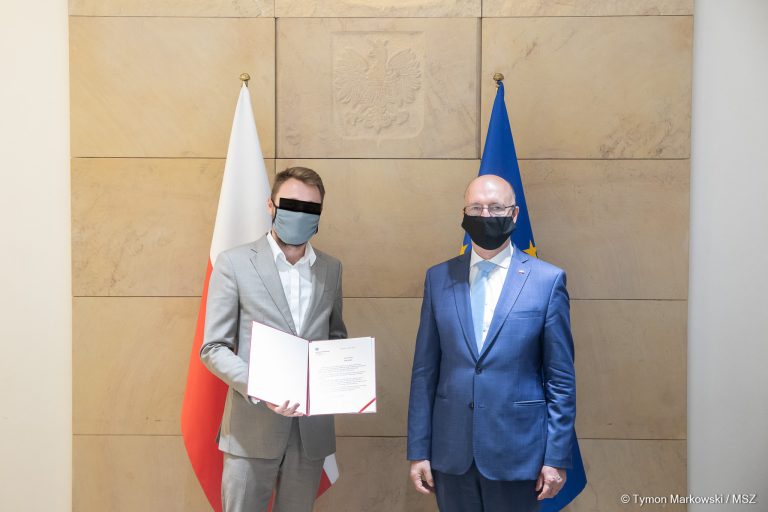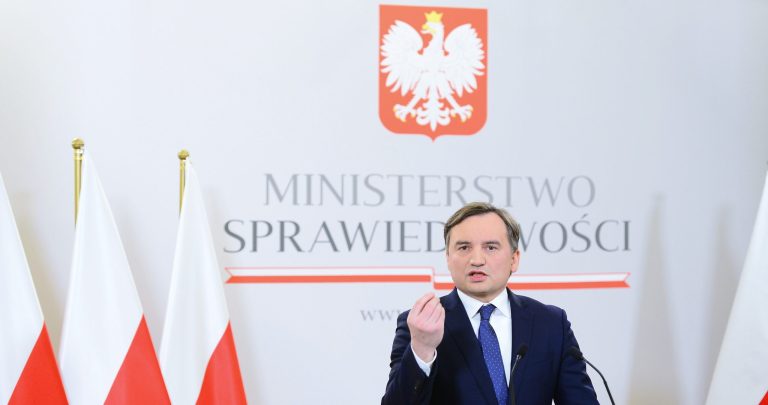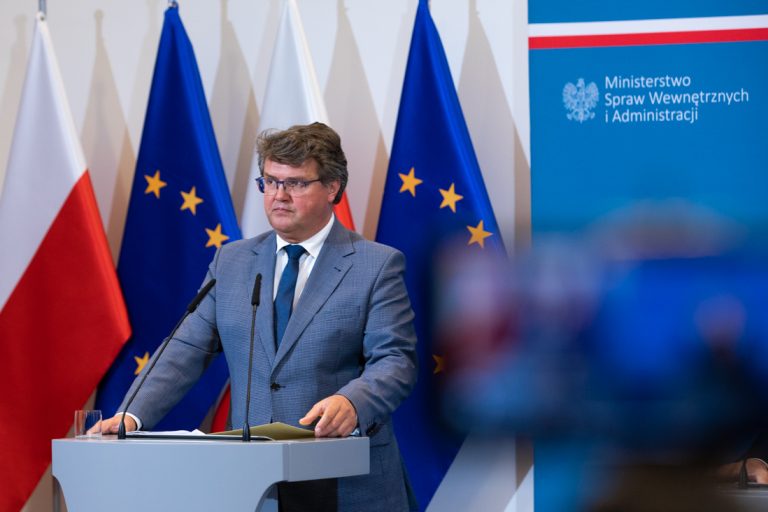Greenpeace launches campaign against construction of floating LNG terminal in Poland
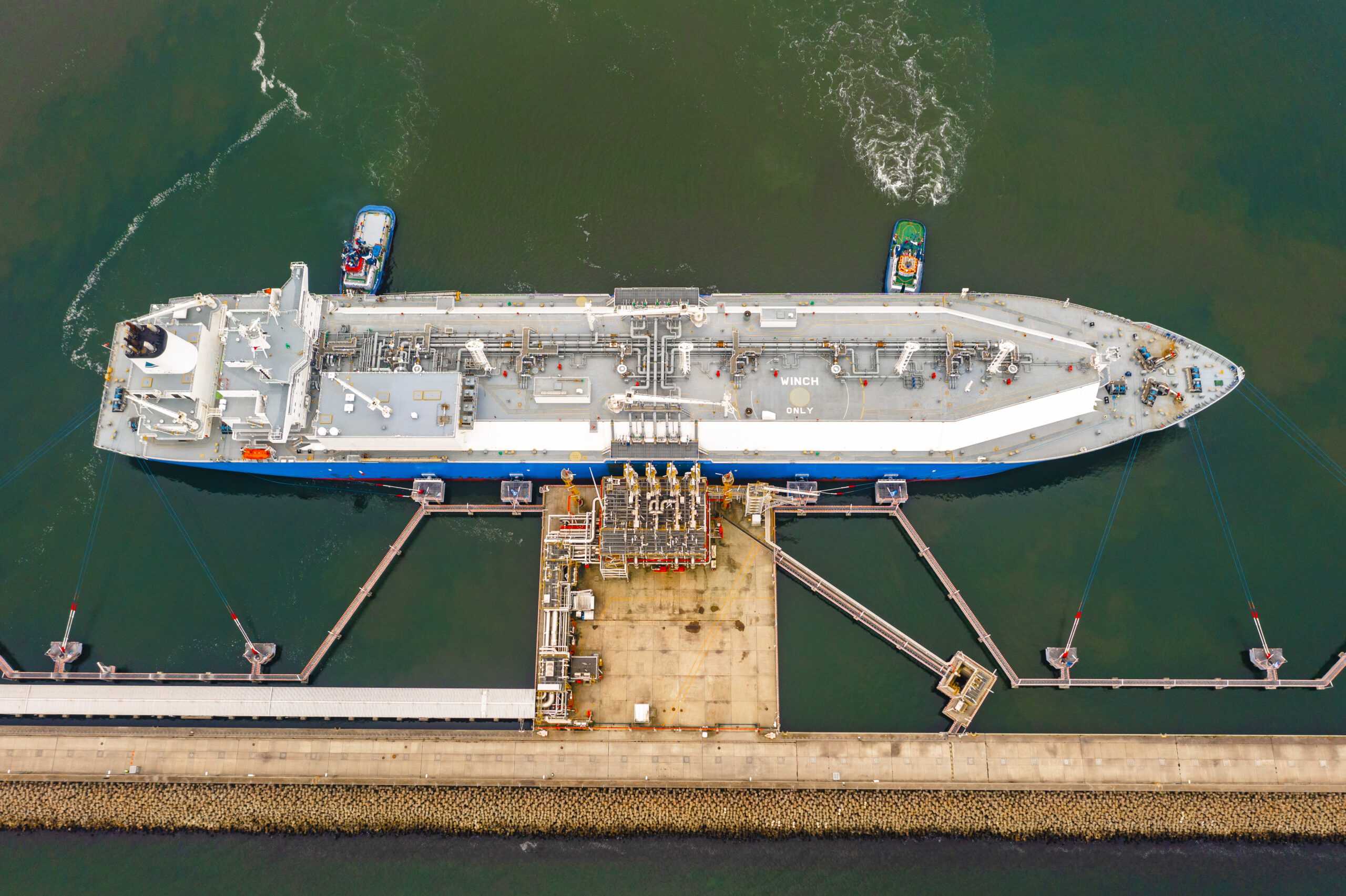
The Polish branch of Greenpeace has launched a campaign opposing the government’s plans to construct a new floating liquefied natural gas (LNG) terminal in the port Gdańsk. It argues the project will increase Poland’s dependence on external gas supplies, damage the climate, and threaten protected animal species.
A deputy foreign minister, however, accused the organisation of “trying to undermine Poland’s security”. The government has argued that the terminal is necessary as part of efforts to make both Poland and neighbouring countries independent of gas imports from Russia.
Poland has announced that, due to interest from the Czech Republic, Slovakia and Ukraine, it will double the size of its planned new floating liquefied natural gas (LNG) terminal in Gdańsk https://t.co/GHkDtivCA6
— Notes from Poland 🇵🇱 (@notesfrompoland) June 6, 2022
Poland has for years intended to build a floating storage regasification unit (FSRU) in the port of Gdańsk on the Baltic coast. It was planned as part of efforts to diversify away from Russian energy supplies initiated even before the invasion of Ukraine.
Those efforts already included a stationary LNG terminal in Świnoujście that opened in 2015 and last year received a record 58 shipments carrying 4.4 million tonnes of LNG, mainly from the United States and Qatar.
The war in Ukraine has accelerated and expanded plans for the terminal in Gdańsk, with the climate minister announcing last year that its planned capacity would be doubled from to 12 billion cubic metres (bcm) a year due to interest from Poland’s landlocked neighbours Slovakia and the Czech Republic.
A public consultation is underway for the project, which, according to plans put forward by the government, would become operational by 2027-28 with an initial capacity of 6.1 billion cubic metres (bcm) a year.
Poland imported a record amount of liquefied natural gas in 2022, as it diversified away from Russian energy.
It received 4.4 million tonnes, 57% more than in 2021. That made LNG the country’s main source of gas, meeting one third of national demand https://t.co/GRAFD5fsV5
— Notes from Poland 🇵🇱 (@notesfrompoland) January 4, 2023
Greenpeace Polska, however, claims that the project is a “harmful investment” and has called on Poles to send letters opposing the project.
“An energy transition based on natural gas is a costly trap that undermines Poland’s energy security and the economic interests of Polish society,” said the organisation.
“The implementation of this plan means that Poland will continue to be dependent on external supplies of this fuel,” it added
Trwają konsultacje społeczne w sprawie budowy terminala gazowego w Zatoce Gdańskiej, która będzie mieć negatywny wpływ na klimat i na żyjące w okolicy zwierzęta.
Zachęcamy do wzięcia w nich udziału, by zatrzymać realizację tego szkodliwego projektu👉https://t.co/UGcOzOhyhy pic.twitter.com/CBXUOe7g9M
— Greenpeace Polska (@Greenpeace_PL) November 8, 2023
The organisation also notes that the LNG terminal will be located in an area within the EU’s Natura 2000 nature protection network and is home to many species of birds, marine mammals and fish under protection.
Construction of the terminal as well as the traffic of ships to it once completed will threaten, among others, grey seals, porpoises and many fish and bird species, claims Greenpeace, which also noted that gas imports and their use are bad for the climate.
“Although its combustion emits less CO2 than coal-fired power generation, the extraction and transport of natural gas emits large amounts of methane, which heats up the atmosphere even faster than carbon dioxide,” said the organisation.
⚠️‼️Próba zablokowania terminala gazowego przez @Greenpeace_PL to element szerszego planu. Ostrzegamy przed tym od dawna.
Pod hasłami ochrony klimatu próbują doprowadzić do osłabienia bezpieczeństwa Polski i wpędzenia nas na nowo w uzależnienie energetyczne od innych państw. https://t.co/Y4Cm40FCMZ
— 🇵🇱 Paweł Jabłoński (@paweljablonski_) November 9, 2023
Deputy foreign minister, Paweł Jabłonski, however, rejected Greenpeace’s arguments. “Under the slogans of climate protection, they are trying to undermine Poland’s security and drive us back into energy dependence on other countries,” he wrote on social media.
Energy analyst Wojciech Jakóbik also addressed Greenpeace’s call, pointing out that the terminal is intended to help implement the EU’s plan to part with Russian gas by 2027. “[Focus on] environment yes, but not blindly,” he wrote.
“It is also worth adding that [protecting] porpoises were once an argument against the Baltic Pipe,” he added, referring to a gas pipeline from Norway to Poland that opened last year. “The animals were fine, and if we had not built it, the energy crisis could have ended up with a gas shortage for us.”
Greenpeace apeluje o listy sprzeciwu wobec budowy pływającego gazoportu w Polsce, który ma dać gaz spoza Rosji jej sąsiadom jak Czechy czy Węgry. FSRU pomoże realizować unijny plan rozstania z Rosjanami do 2027 roku. Środowisko tak, ale nie na ślepo.
— Wojciech Jakóbik (@wjakobik) November 9, 2023
Main image credit: PGNiG press materials
Alicja Ptak is senior editor at Notes from Poland and a multimedia journalist. She previously worked for Reuters.

